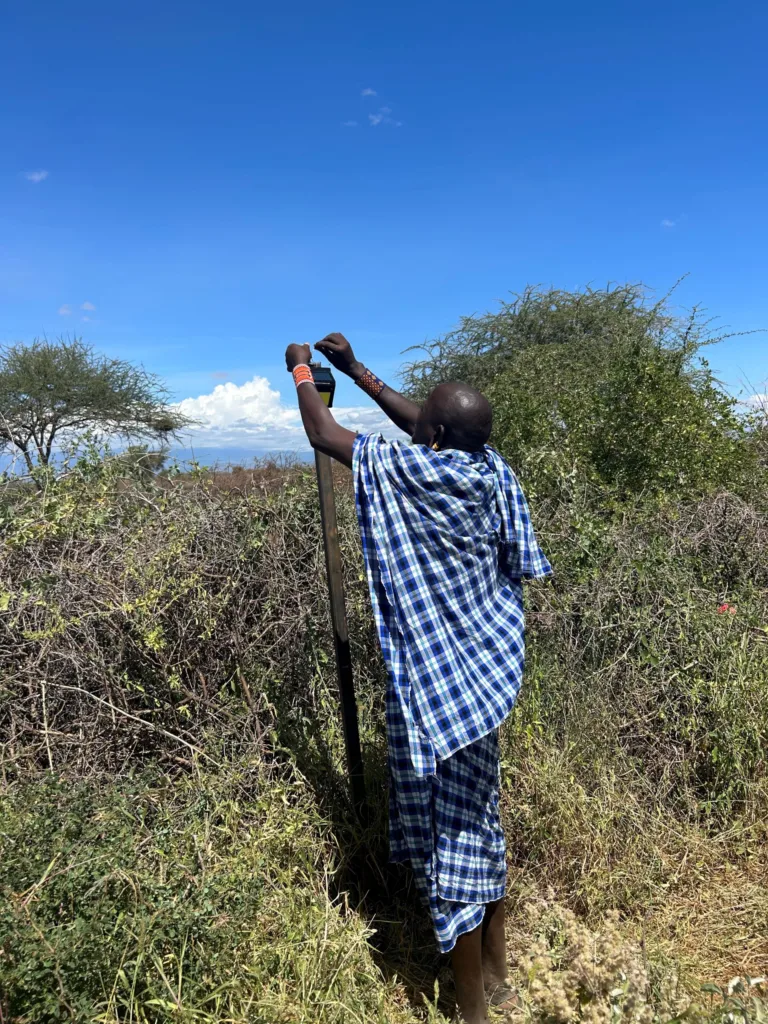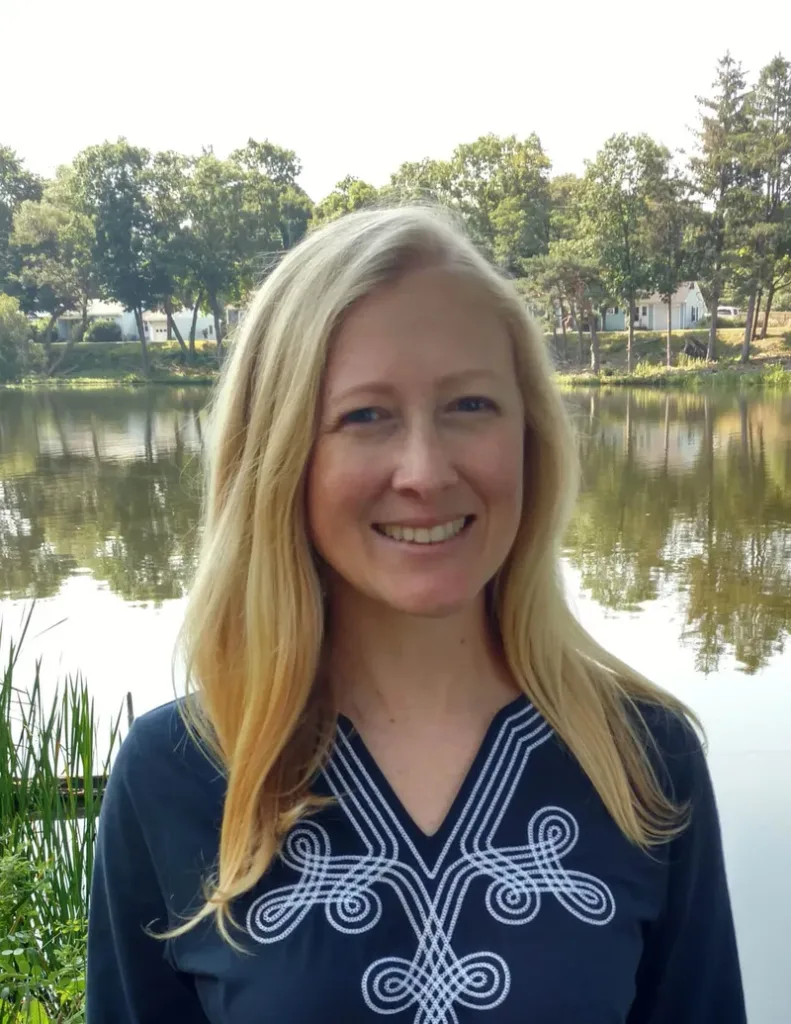
By: Marta Brill
Traveling Lectures
This week marks the end of our summer program at the SFS Center for Wildlife Mmanagement Studies (CWMS) in Tanzania. The summer programs at the SFS CWMS explore issues pertaining to the complex relationship between competing land uses (agriculture, pastoralism, wildlife conservation, tourism) and how such competition affects the long-term conservation of wildlife and other natural resources in the Tarangire-Manyara Ecosystem (TME).
Tanzania is world-renowned for protected areas and wildlife-based ecotourism. More than 38% of Tanzania is set aside in one form or another as protected area for conservation of wildlife and other natural resources. By 2013 it was estimated that the tourism sector was contributing more than 12% of Tanzania’s economy. Some of the well-known and famous tourist attractions, including Serengeti National Park, Mt. Kilimanjaro, Tarangire National Park, Manyara National Park and Ngorongoro Conservation Area, are found in northern Tanzania.
Despite the extensive network of protected areas in northern Tanzania, there are various challenges that threaten the long-term and sustainable conservation of wildlife and other natural resources, and ultimately the future of ecotourism and the livelihoods of local communities. For sustainable and long-term conservation and management of wildlife and other resources, we must understand the complex relationships between the environment, wildlife conservation, and local livelihoods. CWMS is strategically located in the TME, amidst northern Tanzania’s network of protected areas. The Center provides a natural laboratory for environmental studies and contributes to conservation efforts of wildlife and natural resources by providing information to decision-makers that is critical to understanding the complexity of coupled natural-human systems.
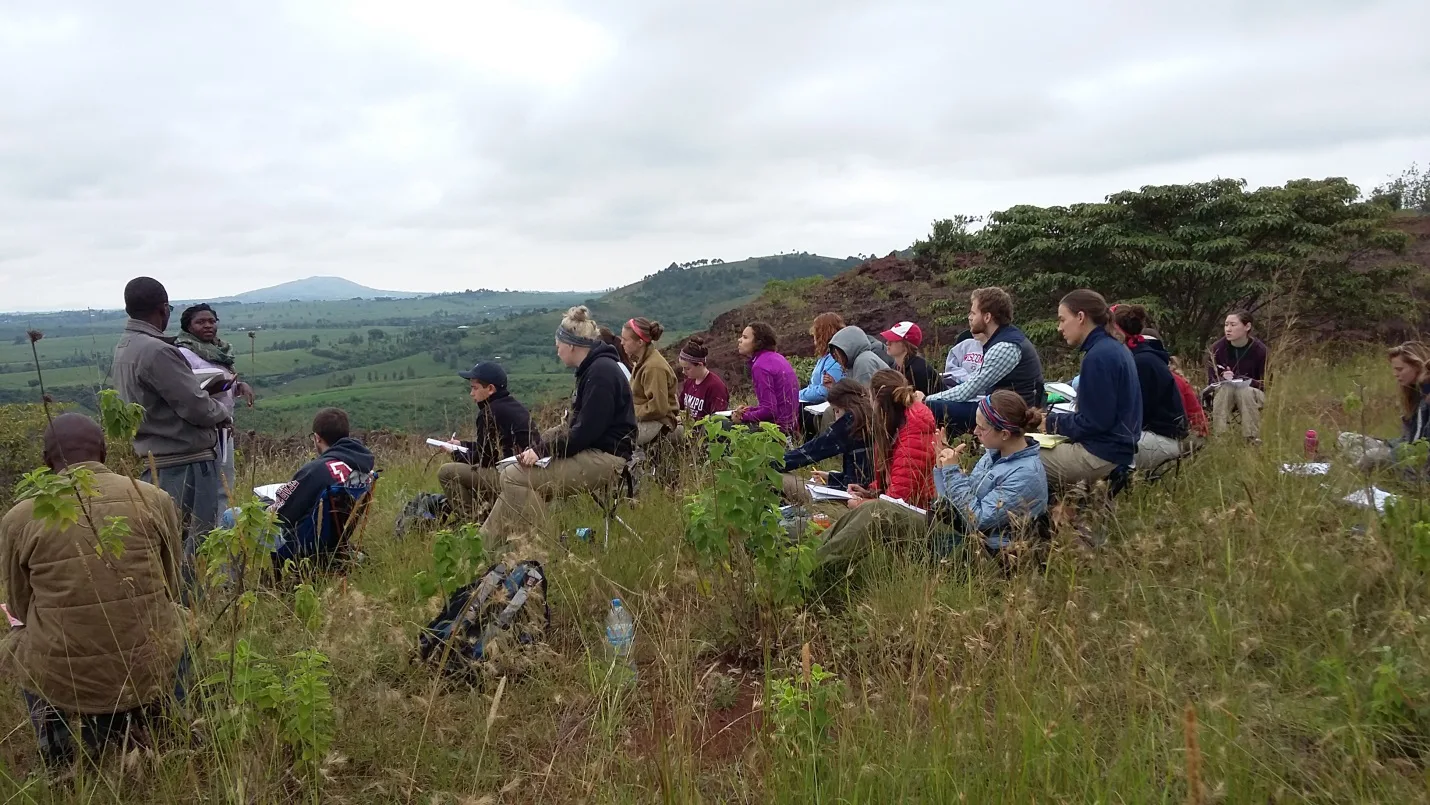
Summer students and lecturers at Kilimatembo overlooking the rift valley to explore issues on land use changes and habitat degradation.
Summer Session I focused on wildlife management and the relationship between people and wildlife, explored the present and future of wildlife management, and examined influences of local people’s attitudes towards natural resources. In addition, the program looked at the national land tenure regimes and policy frameworks. Summer Session II exposed students to various techniques and methods in wildlife management. Faculty and staff provided students with a set of field-based experiences in vegetation surveys, wildlife counts, and estimating density and habitat preferences of wildlife species. Students also explored various aspects of participatory learning approaches and human-wildlife conflict and mitigation.
The hallmark of the SFS CWMS summer program, and all other SFS programs, has been the provision of hands-on, field-based experiential learning. One way of achieving this has been the use of traveling lectures, which involve stopping at specific designated sites within the ecosystem, strategically located to offer a vantage point where various aspects of the ecosystem can be viewed and discussed. Traveling lectures add great value to the learning environment of the courses, giving students an opportunity travel to the field and see, learn, and discuss various issues pertaining to environmental conservation, wildlife management, land use changes, and people’s livelihoods.
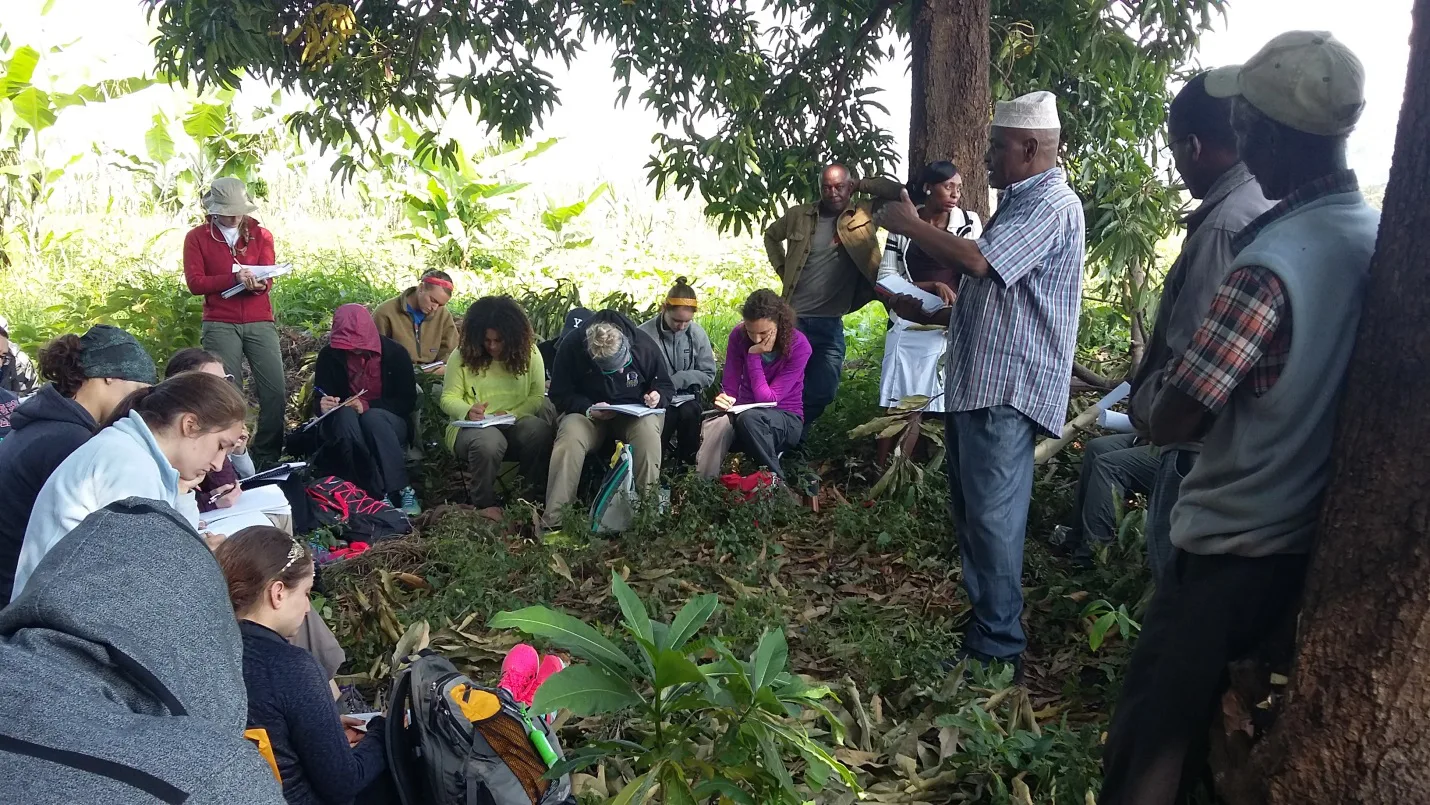
A second traveling lecture site exploring the relationship between agriculture, local livelihoods, and conservation by a local expert in Mtowambu.
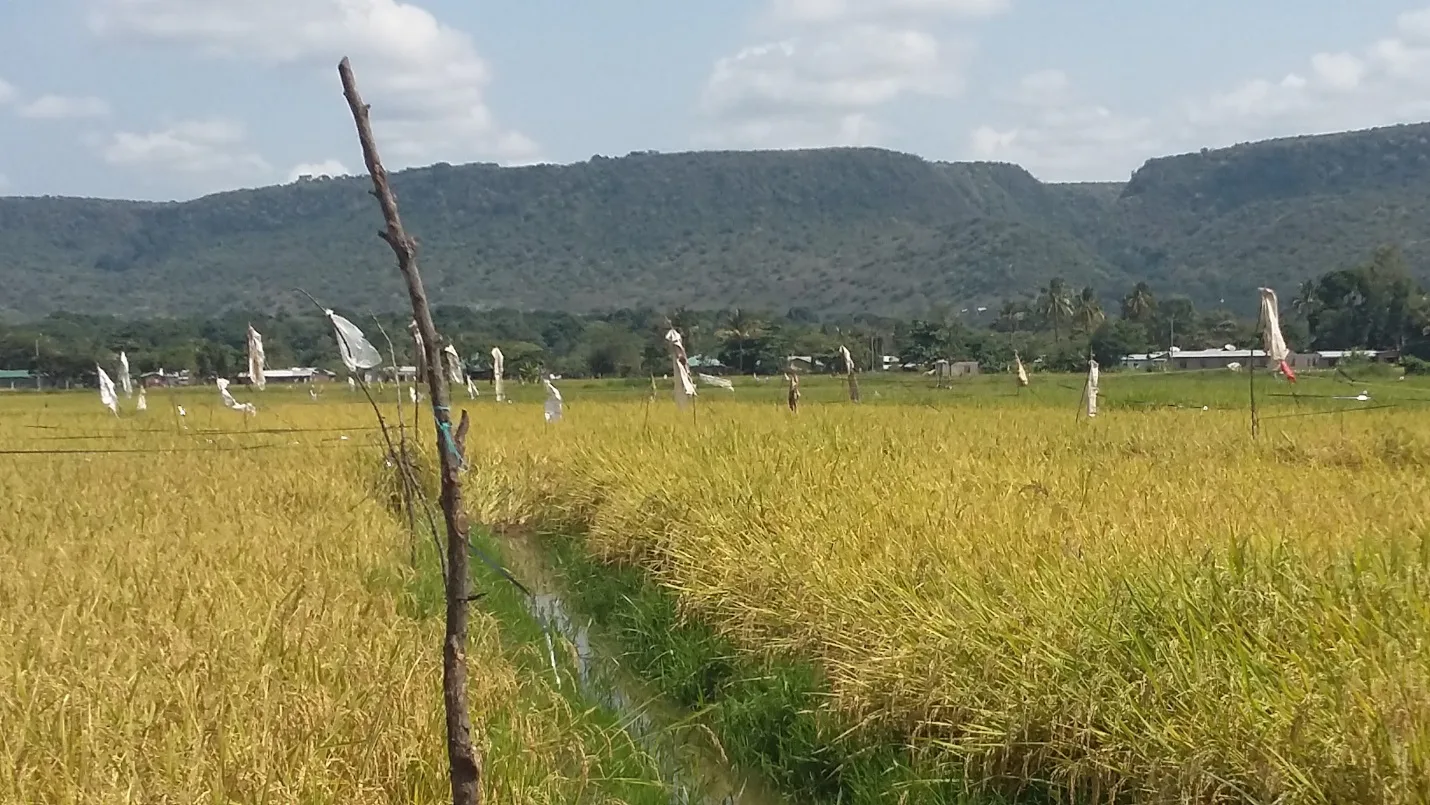
Irrigated rice farms in the fast-growing town of Mtowambu (adjacent to Manyara National Park) demonstrate competing land use between agriculture, wildlife conservation, and human settlement in the TME ecosystem.
Related Posts
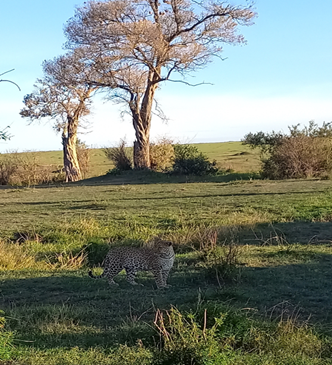
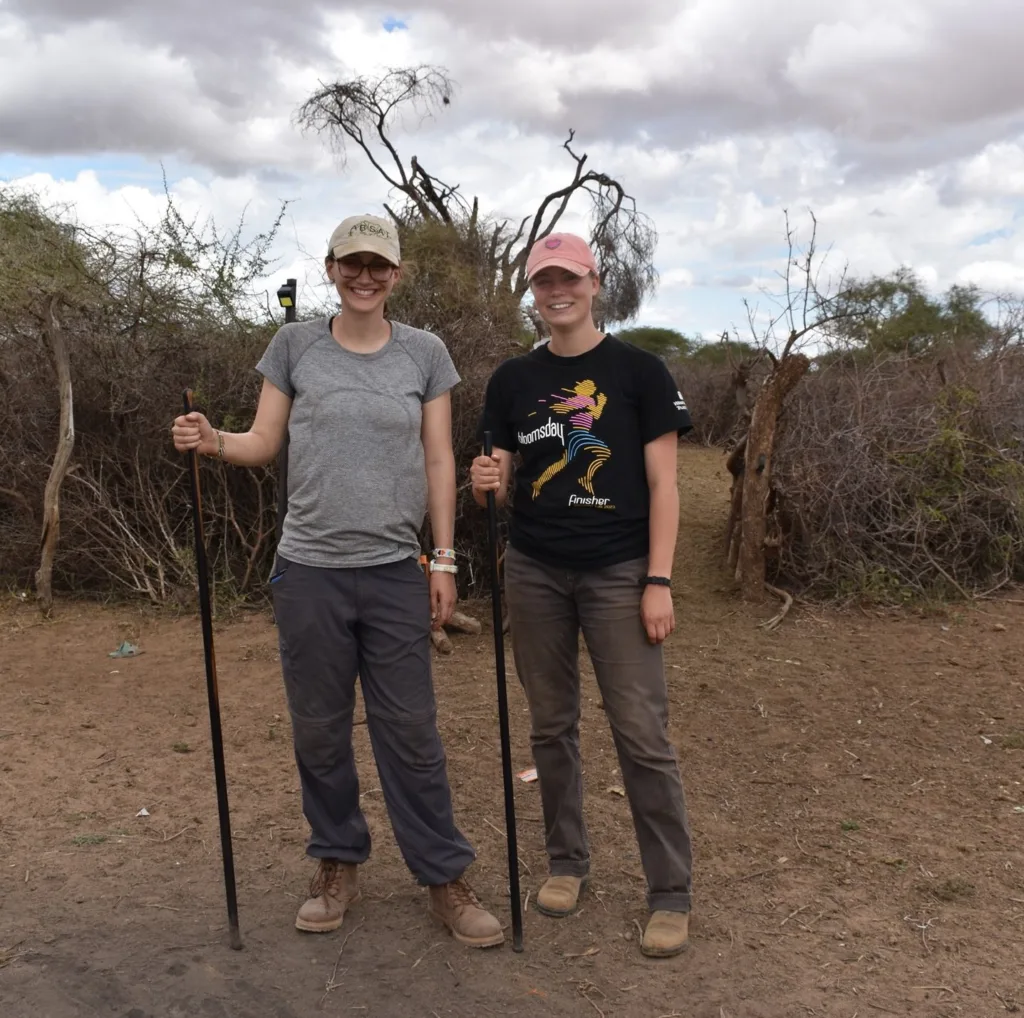
Alumni Reflections: Stories of the Return to Kenya
